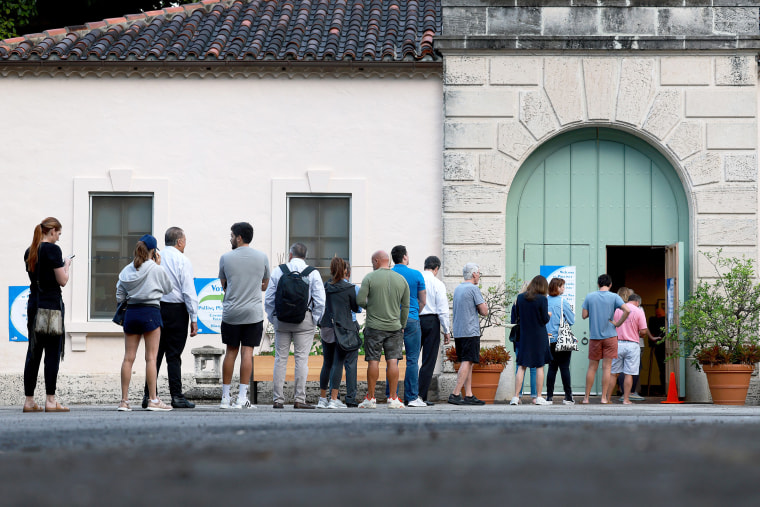A federal appeals court on Thursday upheld several Republican-backed voting restrictions in Florida, overruling a lower court judge who had found the laws intentionally discriminated against minority voters.
In a split 2-1 decision, a panel of judges at the 11th U.S. Circuit Court of Appeals said the evidence did not show that lawmakers deliberately targeted Black voters when they passed provisions limiting the use of ballot drop boxes, barring third-party organizations from collecting voter registration forms and preventing people from engaging with voters in line.
Governor Ron DeSantis, who is expected to launch a bid for the 2024 Republican presidential nomination next month, signed the restrictions into law in 2021, amid a national push by Republicans for new limits in the wake of former President Donald Trump’s false claims of voter fraud following his defeat to Joe Biden.
Several civil rights groups challenged the law in court. In March 2022, U.S. District Judge Mark Walker in Tallahassee had struck down most of the law as racially discriminatory.
He also ordered the state to seek court approval for any further changes to those provisions for 10 years, a practice known as “preclearance” that he said was justified by a long history of discrimination.
But the appeals court ruled that Walker had erred, both on the law and on the facts, and threw out the preclearance requirement.
The two judges in the majority, William Pryor and Britt Grant, were both nominated by Republican presidents; the dissenting judge, Jill Pryor, who is not related to William Pryor, was nominated by a Democrat.
